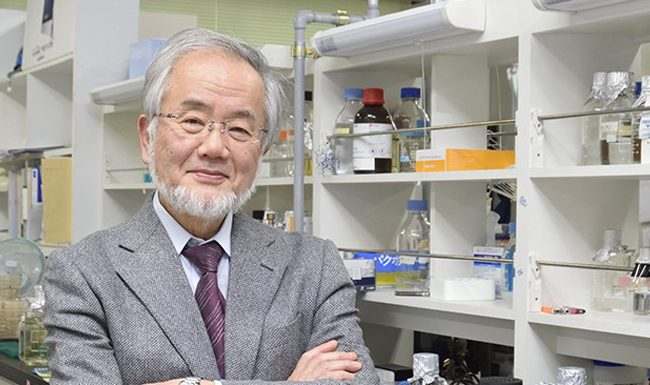Yoshinori Ohsumi, a Japanese cell biologist, was awarded the Nobel Prize in Physiology or Medicine on Monday for his discoveries on how cells recycle their content, a process known as autophagy.
Autophagy, derived from the Greek, means “self-eating.”
“This concept emerged during the 1960s, when researchers first observed that the cell could destroy its own contents by enclosing it in membranes, forming sacklike vesicles that were transported to a recycling compartment, called the lysosome, for degradation,” the Nobel Assembly at Karolinska Institutet in Stockholm said in announcing the prize.
Dr. Ohsumi used baker’s yeast to identify genes essential for autophagy, and he went on to examine the underlying mechanisms of the process.
“Ohsumi’s discoveries led to a new paradigm in our understanding of how the cell recycles its content,” the Nobel Assembly said. “His discoveries opened the path to understanding the fundamental importance of autophagy in many physiological processes, such as in the adaptation to starvation or response to infection.”
Mutations in autophagy genes can cause disease, the assembly said, and the process is involved in several conditions including cancer and neurological disease.
Dr. Ohsumi, born in 1945 in Fukuoka, Japan, is a professor at the Tokyo Institute of Technology.
Who won last year’s Nobel Prize in Physiology or Medicine?
William C. Campbell, Satoshi Omura and Tu Youyou were recognized for their use of modern laboratory techniques to discover anti-parasitic drugslong hidden in herbs and soil.




